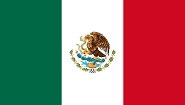Government/Policy

July 24, 2018
Mexico Urges Restart of NAFTA Talks
Written by Sandy Williams
The president-elect of Mexico is urging President Trump to restart NAFTA negotiations, warning that a protracted delay will harm investment in the region.
“In the matter of trade, I think it is worth making an effort to conclude the renegotiation of the North American Free Trade Agreement. I think that prolonging the uncertainty could slow down investments in the medium and long-term, which obviously hinders economic growth in Mexico and, therefore, the government’s strategy that I will lead that seeks to generate jobs and better living conditions for all Mexicans,” Andrés Manuel López Obrador wrote in a July 12 letter to Trump published on his website July 22. “At this point, I propose to resume negotiations with the participation of representatives from Mexico, Canada and the United States. Our transition team would participate in coordination with the officials of the current Mexican government.”
The president-elect will not take office until December, but has said he will accept a NAFTA deal negotiated under the present administration.
Although there has been talk by the White House of a bilateral deal between Mexico and the U.S., Jesús Seade, Mexico’s chief NAFTA negotiator, said he prefers for the deal to remain trilateral.
Canadian Foreign Minister Chrystia Freeland said Canada also remains focused on a trilateral NAFTA agreement.
“NAFTA is a trilateral agreement that has set a productive framework for trade and investment in North America for the past 24 years,” said Freeland spokesman Adam Austen in an email to Inside U.S. Trade. “We remain focused on modernizing and improving this agreement in [a] way that benefits the middle class in all three countries. There have been regular bilateral engagements between the three NAFTA countries in the context of these trilateral negotiations and we expect that to continue.”
A meeting is scheduled with Mexican Economy Secretary Ildefonso Guajardo and U.S. Trade Representative Robert Lighthizer on July 26. Freeland is not scheduled to attend.
Last week, JPMorgan Chase CEO Jamie Dimon criticized the Trump administration for its trade policies and its approach to NAFTA. “We want NAFTA done,” said Dimon in an interview with CNN. “To be torturing Mexico in this way, in my opinion, is dead wrong, and it should be fixed.”







